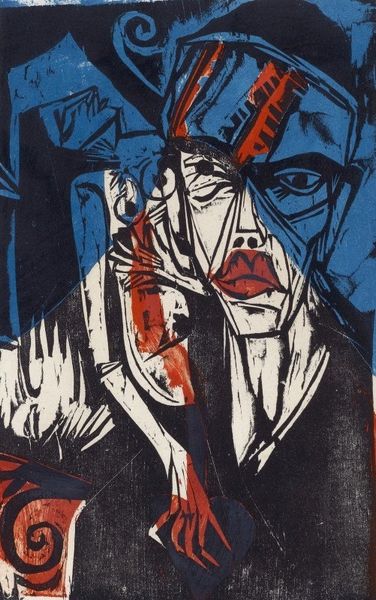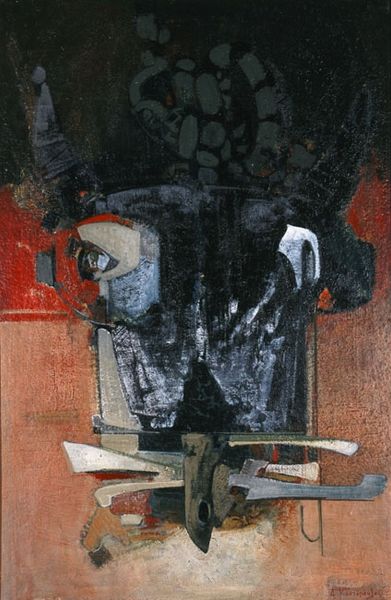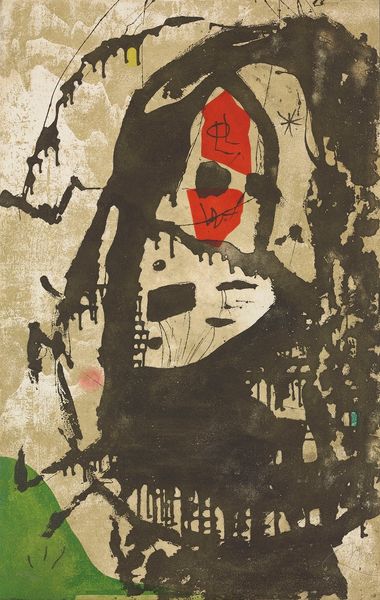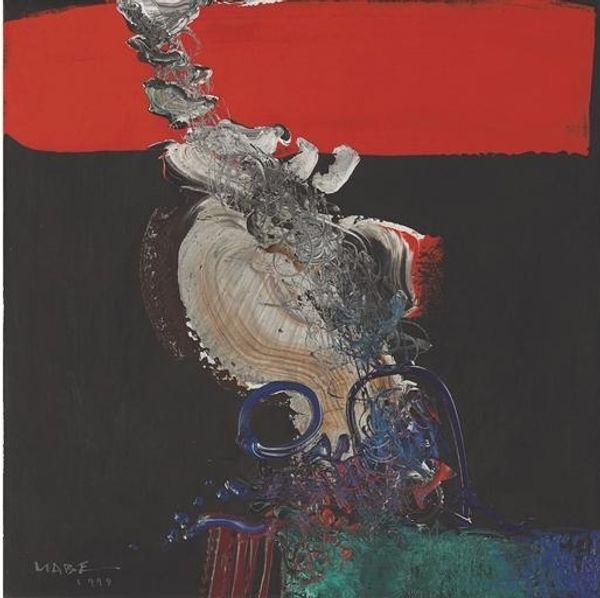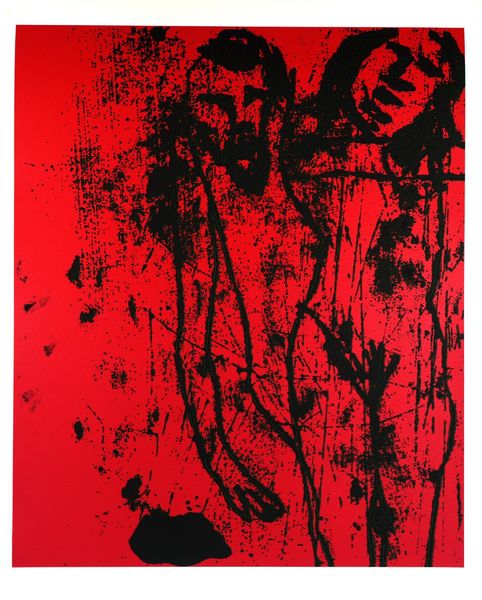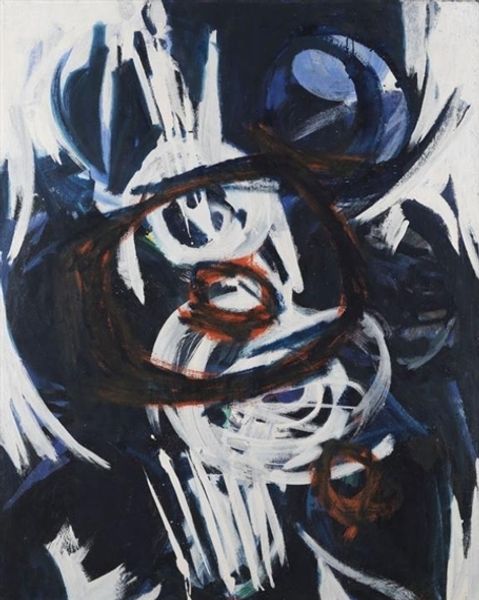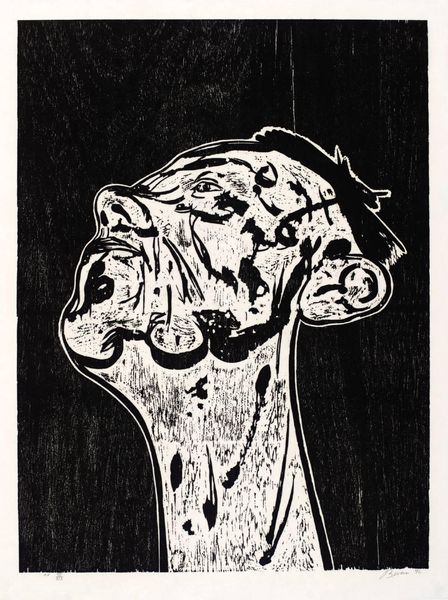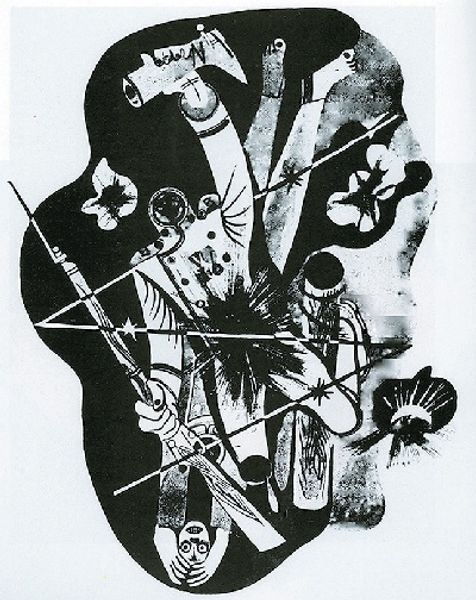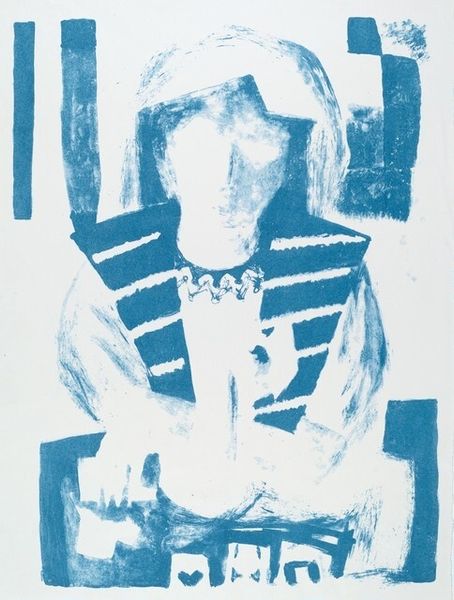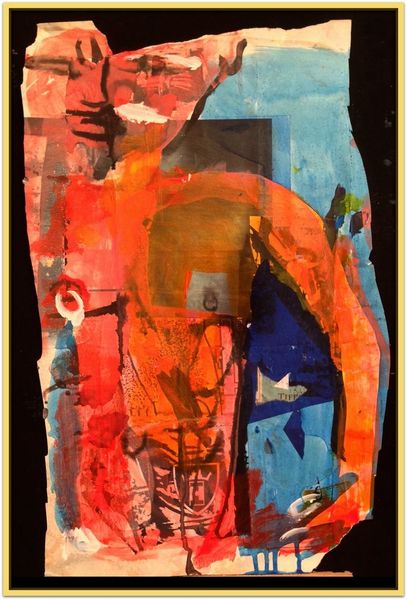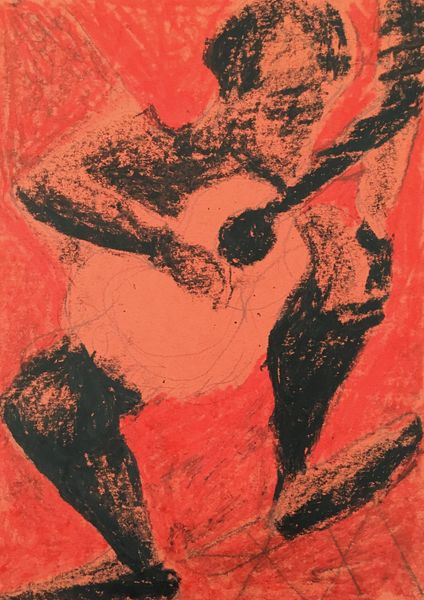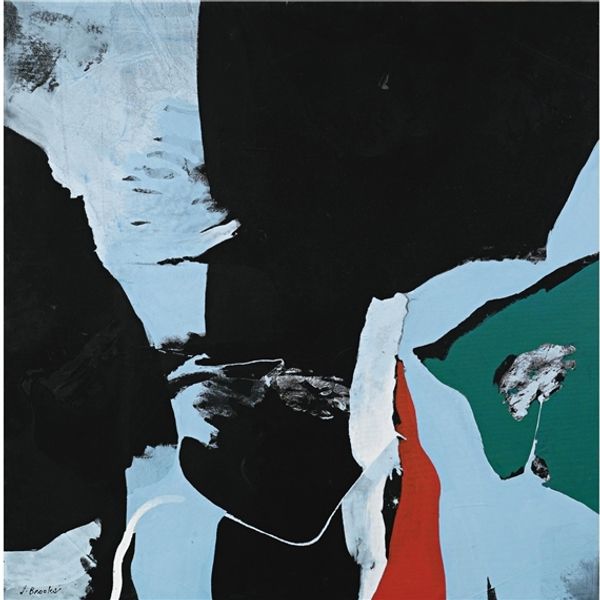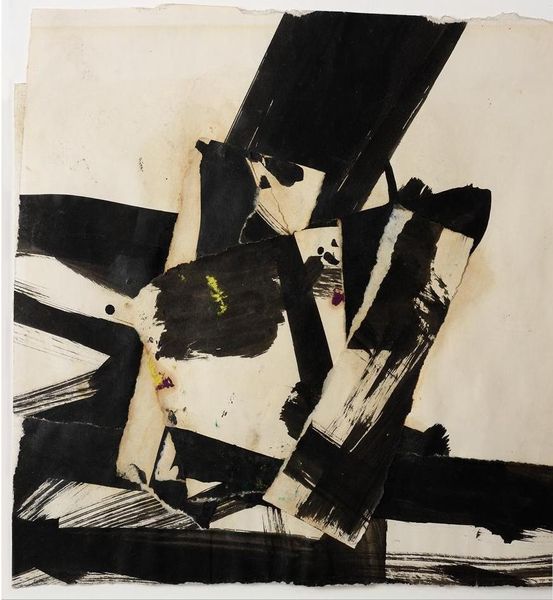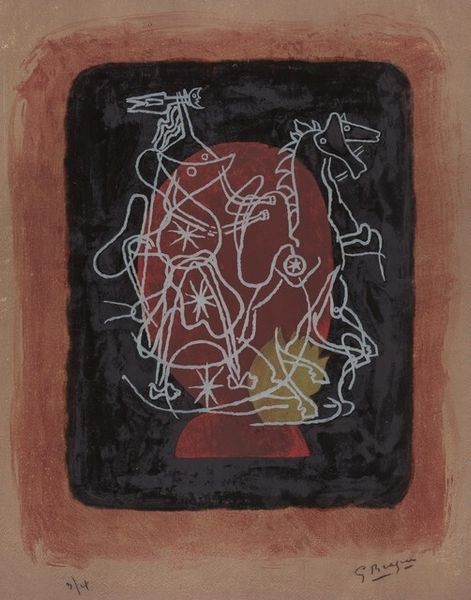
Copyright: Alla Horska,Fair Use
Editor: Here we have Alla Horska’s "Portrait of the Poet Vasyl Symonenko," painted in 1964, using acrylic paint. It's striking – the stark black background and bold red and white shapes give it a powerful, almost defiant feel. What do you see in this piece, beyond just the surface level? Curator: I see a potent intersection of art and activism. Horska painted this during a time of intense political repression in Ukraine. Understanding that context, the portrait isn't merely a likeness, it's a statement. The abstracted form of Symonenko, rendered in such high contrast, evokes a sense of resistance. Notice the colors: what could the stark contrast between the red, black and white symbolise to you? Editor: Well, red could represent passion, or even blood and sacrifice. The black perhaps, oppression, and white maybe hope, or even a surrender? Curator: Precisely! And Horska’s artistic choices speak volumes. This expressionistic style departs significantly from the officially sanctioned Socialist Realism. That in itself was a brave act of defiance. It positions the artist in opposition to the regime. Consider that Symonenko was also a dissident, writing poetry critical of the Soviet system. Does this context affect your reading of the image? Editor: Absolutely. Knowing their shared defiance adds another layer of meaning. It’s not just a portrait, but a symbol of shared resistance, a call for freedom painted right under the noses of the authorities! Curator: Indeed. It's a visual manifesto. The seemingly simple color palette and abstracted forms actually amplify its message, speaking to themes of political repression, cultural identity, and the courage of artistic expression in the face of oppression. The radical nature of the artistic expression shows how cultural impact transcends mere artistic representation. Editor: I see it now. Thanks, that gave me so much more insight into Horska's work. I'm seeing it as more than just a portrait – it's a historical and political statement.
Comments
No comments
Be the first to comment and join the conversation on the ultimate creative platform.
